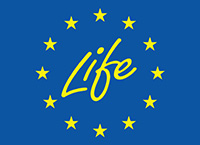Three-day journey through organic – Report about European Organic Congress 2023
Co-organised by IFOAM Organics Europe and Ecovalia, the 2023 European Organic Congress brought together key EU and Spanish policymakers in organic. At this year’s edition of our annual Congress, more than 350 participants from all over Europe and beyond gathered in the picturesque city of Córdoba, a city in the southern Spanish region of Andalusia.
During this year’s sunny congress in Córdoba participants learned from and discussedthis year’s Congress’ theme:Organic innovating sustainable food systems – Challenges for organic: producers, market, consumption & innovation.
The first day of the Congress focused on the challenges and opportunities facing organic production – supply chain fairness, empowerment of new generations, and organic farming promotion at EU and national level. Speakers exchanged on how to transition to sustainable food systems, prioritised in the Farm to Fork Strategy.
Recent (geo)political circumstances showed the flaws of our food system, such as high dependency on costly and energy-intensive inputs like synthetic pesticides and fertilisers. Many speakers concluded that strong policy and political support are key to ensure the transition and the opportunities organic offers for this.
“Member States & regions are those best placed to implement support for organic. Bringing them together with stakeholders along the supply chain will help develop the sector and promote and protect the organic logo”, states Joanna Stawowy, Member of Cabinet of the European Commissioner for Agriculture.
New geopolitical circumstances have revealed the flaws of the food system, and it was concluded that strong policy and political support are key to ensuring the transition and the prominent role of organic therein.
.@89SilviaSchmidt asks our #EOC2023 market panel, how can we make organic available to all? Speakers agree:
👉Ensuring the added value of #the organic label is clear & consumers know what's behind them
👉Educating consumers through digital channels – on organic label & organic pic.twitter.com/F8ZB39i51i— IFOAM Organics Europe (@OrganicsEurope) September 26, 2023
Raffaele Zanoli, Professor of Agro-Food Marketing, opened the second day of our Congress with findings from the OrganicTargets4EU project. Raffaele presented four scenarios to reach 25% organic, stressing that organic is a system solution to cover the climate and biodiversity crises and that the 25% organic land target should not be reached by lowering organic principles.
Following the, the Congress participants discussed a variety of topics in different break-out sessions. Based on their professional background and interests, they discussed topics from trends in international organic markets to research and innovation opportunities and from challenges in organic certification and to carbon farming.
The #OT4EU project, created 4 scenarios for organic growth:
1/⏫ demand through greening public policies
2/Dualism w/💰 mostly from large companies
3/Consumers demand #OrganicOnEveryTable, public&private funding follow
4/#Organic is the only label
🎙️ @raffaele_zanoli at #EOC2023 pic.twitter.com/DuHqGyQb9N— IFOAM Organics Europe (@OrganicsEurope) September 27, 2023
The final session of day two zoomed in on one of the pillars to achieve our vision for 2020: organic on every table. Speakers from many different practical backgrounds shared their projects, innovations and experiences. Their shared feeling was that it is crucial to recognize the importance of restaurants, collective catering, and public procurement, like school meals, for securing new markets for organic producers.
Speakers’ presentations of both days are available on the European Organic Congress’ website.
On the last day, participants who wished to see a local farm visited Cortijo el Puerto, an organic olive grove and an organic mill in Sevilla, where they saw the entire organic oil production chain.The farm stands out as it invested a lot in biodiversity and ICT use. There is a bioclimatic building on the farm and it practices water management carried both on the farm and in the processing facilities, ensuring efficient wate use, an extremely important resource, especially in semi-arid zones.






Stay up to date about the next edition of our Congress on www.europeanorganiccongress.bio and/or social media using #EOC2024.

The work of IFOAM Organics Europe on this topic is co-financed by the LIFE programme of the European Union, under the Climate, Infrastructure and Environment Executive Agency (CINEA). This page only reflects the views of the authors and its sole responsibility lies with IFOAM Organics Europe. The CINEA is not responsible for any use that may be made of the information provided.

